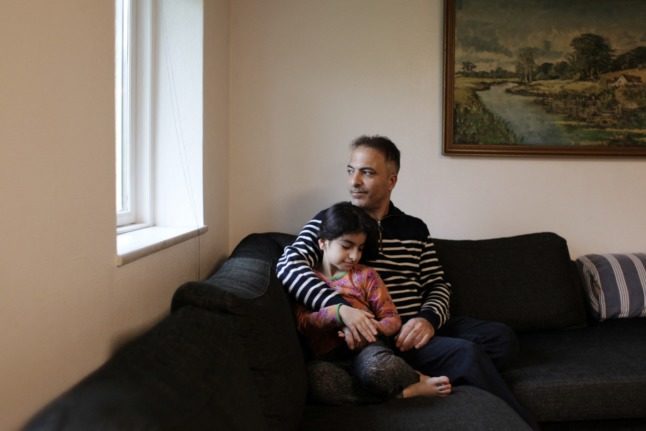SYRIA
Denmark attack ‘echo’ of Syria unrest: Assad
Syrian President Bashar al-Assad warned about a growing danger from ‘Scandinavian’ Islamist extremists in his country and said the shootings in Paris and Copenhagen were repercussions of what is happening in his country.
Published: 17 April 2015 08:41 CEST

Bashar al-Assad. Photo: Roosewelt Pinheiro/ABr/WikiCommons
According to Bashar al-Assad, “Scandinavian” members of Isis are pose a major threat in Syria.
“When you look at Sweden as part of Europe, or part of the Scandinavian group of European countries, you have to take into consideration that the most dangerous leaders of Daesh or Isis in our region are Scandinavian,” he told Swedish newspaper Expressen in an English-language interview.
When Expressen questioned al-Assad’s claim about Scandinavians, the Syrian leader said “we have this information”.
The Syrian president told the Swedish outlet that Scandinavian countries cannot escape the “global” issue of terror and that "it doesn’t take a genius” to understand that the unrest in Syria played a key role in the terror attacks in Copenhagen and Paris.
“Everything that has happened in Europe, and I mean terrorist attacks, we warned about from the very beginning of the crisis. Syria is a fault line and when you mess with this fault line you will have echoes and repercussions in other areas. Not only in our area, but in Europe,” he said.
“Terrorism is not a domestic issue, it’s not even regional, it’s global,” the president also noted.
The Expressen interview was published days after the EU’s justice commissioner estimated that the number of Europeans fighting with jihadist groups in Syria could exceed 6,000.
The Danish Security and Intelligence Service (PET) estimates that at least 115 Danes have left for Syria. That puts Denmark second only to Belgium in the number of foreign fighters per capita that have gone to fight in Syria or Iraq. Around 50 jihadists are now thought to be back in Denmark.
The flow of jihadists from Denmark to Syria and Iraq slowed significantly in 2014 compared to the year before, recent numbers from the Danish Security and Intelligence Service (PET) revealed.
But just last week it emerged that the Danish National Police confiscated the passport of a 23-year-old man from Copenhagen who was thought to be on his way to Syria. That marked the first time that new anti-terror measures were used to stop a suspected foreign fighter from leaving the country.
More than 215, 000 people have been killed in Syria's four-year war, which is increasingly dominated by jihadist groups.
When Expressen asked President Assad about his army losing control of vast areas to Isis, he said: “You have ups and down, you have wins you have losses and that depends on many criteria”.
“We are still running the country,” he insisted.
More than 11 million Syrian have been forced from their homes since 2011, when pro-democracy protests against President Assad's government erupted and the country slid into civil war.
Url copied to clipboard!


 Please whitelist us to continue reading.
Please whitelist us to continue reading.
Member comments